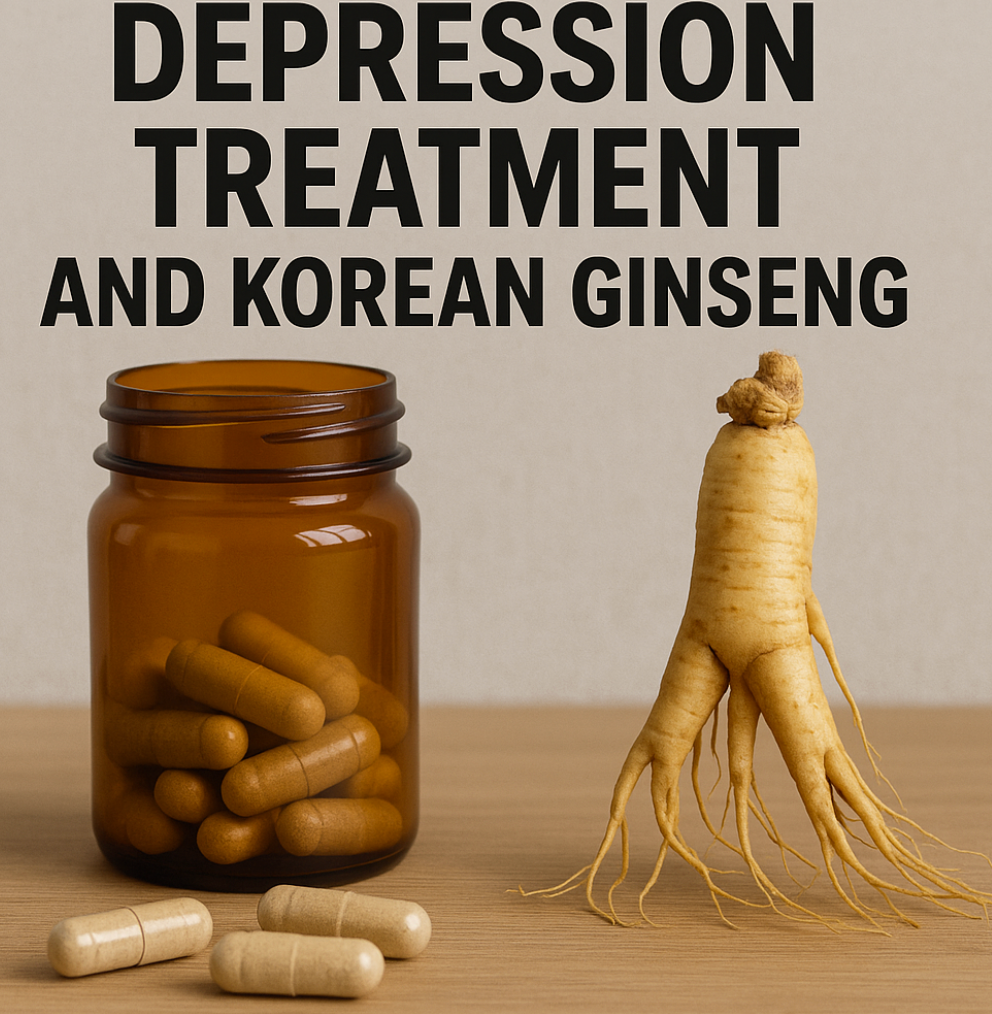Depression is one of the most pressing global health challenges, affecting more than 280 million people worldwide, according to the World Health Organization. While conventional treatments such as antidepressant medications and psychotherapy remain the primary approaches, interest in complementary and natural remedies is rapidly growing. Among them, Korean ginseng (Panax ginseng) has emerged as a promising botanical ally due to its adaptogenic and neuroprotective properties.
Understanding Depression
Depression is not simply feeling sad; it is a complex condition that affects mood, energy, sleep, cognition, and overall quality of life. Key biological factors include imbalances in neurotransmitters such as serotonin, dopamine, and norepinephrine, as well as chronic inflammation and oxidative stress. Standard antidepressants address neurotransmitter imbalances, but many patients experience limited relief or side effects. This has encouraged researchers to explore alternative or complementary therapies.
How Korean Ginseng Supports Mental Health
Korean ginseng is traditionally known as a revitalizing herb that restores balance in both mind and body. Modern science has begun to uncover how ginseng may benefit those struggling with depression:
- Regulation of Neurotransmitters
Ginsenosides, the active compounds in ginseng, influence neurotransmitter pathways. Research shows they can help regulate serotonin and dopamine activity, which are directly tied to mood stabilization. - Anti-Inflammatory Properties
Chronic inflammation has been linked to depressive symptoms. Ginseng reduces pro-inflammatory cytokines, lowering inflammation in the brain and improving overall mental health. - Adaptogenic Stress Relief
Stress is a major trigger for depression. As an adaptogen, ginseng helps the body resist stress by regulating cortisol levels, enhancing resilience against emotional and physical challenges. - Neuroprotection and Cognitive Benefits
Depression often impairs cognitive function. Ginseng’s antioxidant effects protect neurons from oxidative damage, supporting memory, focus, and mental clarity. - Energy and Fatigue Reduction
Fatigue is a common symptom of depression. Ginseng improves mitochondrial efficiency, increasing energy levels and reducing feelings of lethargy.
Scientific Evidence
- A study published in Journal of Ginseng Research highlighted that ginseng extracts significantly improved mood and reduced symptoms of mild to moderate depression.
- Clinical research in Phytotherapy Research demonstrated that ginseng supplementation improved vitality, reduced fatigue, and supported mental well-being.
- Animal studies suggest that ginseng may enhance neuroplasticity, a critical factor in the long-term treatment of depression.
For more in-depth reading, visit The Journal of Ginseng Research and the National Institutes of Health.
Integrating Ginseng into Depression Care
While Korean ginseng is not a replacement for prescribed antidepressants, it can be a valuable complementary therapy. It may be consumed as tea, capsules, or standardized extracts. Patients should always consult a healthcare provider before combining ginseng with medications, as interactions are possible.
Practical uses include:
- Morning ginseng tea to boost energy and mood.
- Supplements during stressful periods to enhance emotional resilience.
- Skincare and wellness products with ginseng to improve self-care rituals.
Conclusion
Depression is a multifaceted condition that requires a holistic approach. Hydration, proper diet, therapy, medication, and natural allies like Korean ginseng together can create a powerful wellness framework. With its ability to regulate mood, fight inflammation, and reduce fatigue, ginseng offers hope as a gentle yet effective aid in the journey toward mental health.
🇰🇷 Premium Korean Ginseng Online Shop







